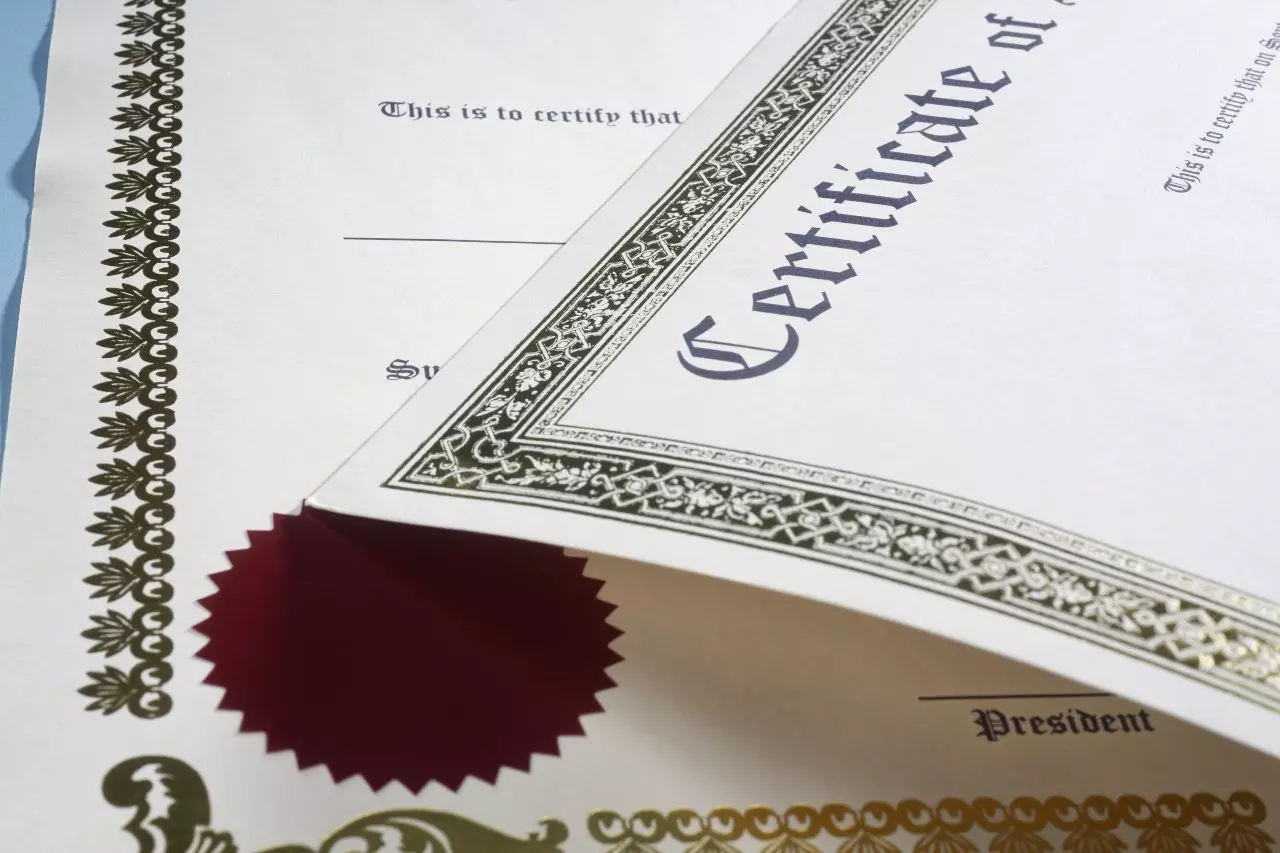How To Start a Bookkeeping Business
A bookkeeping business takes charge of recording and managing companies’ daily financial transactions. Its responsibilities include tracking income and expenses, processing payroll, preparing tax returns, and other financial entries.
Starting a bookkeeping company is a great home-based business as it requires low startup costs.
If you’re thinking about how to start a bookkeeping business, consider the following nine steps.
What Is a Bookkeeping Business?
The bookkeeping business involves tracking income and expenses, processing payroll, and possibly preparing tax returns for business clients. It is a profitable home-based business that’s easy to start with very few resources.
How to Start a Bookkeeping Business in 9 Steps
To start a bookkeeping business, you have to know how to do it. This is not a difficult thing to do. It won’t take you long to launch your bookkeeping business if you follow these steps.
Get Your Certifications
Before starting a bookkeeping business, you should consider what skills, knowledge, and experience you have in bookkeeping and its related activities. Based on this, you should then consider getting the necessary certifications to build your knowledge and skills.

These certifications are not mandatory for starting a bookkeeping business, however, they might be an important part of how you differentiate yourself in a competitive market. These certifications can include the following:
Certified Bookkeeper
You can get this certification even if you don’t have a formal education in bookkeeping or accounting. The top professional organizations you can certify with include the American Institute of Professional Bookkeepers (AIPB) or the National Association of Certified Public Bookkeepers (NACPB).
Remember that these aren’t the only bodies that offer certifications. However, it is important that you choose a reputable organization if you want to obtain your certification as a bookkeeper.
Accounting Software Certification
Some online accounting platforms offer a certification program that demonstrates your proficiency. For instance, these can include Microsoft Excel to prepare financial statements, knowledge of Generally Accepted Accounting Principles (GAAP), and experience with business intelligence and tax preparation software.
One of the main benefits of these certifications is that they’re often free. Also, because it’s a form of promotion for these platforms, some will even offer you the ability to use their software for free if you become certified.
Some of the options include QuickBooks, FreshBooks, and Xero.
Tax Certification
When it comes to tax, you can consider becoming an enrolled agent through the IRS. To do this, you’ll need to pass an examination and then complete a certain amount of ongoing education every year to renew your certification. Keep in mind that the assessments for this certification can be challenging. Still, you’ll be able to offer more services like auditing.
However, you don’t necessarily need these certifications to start your business. Nonetheless, they can help you promote yourself as a credible bookkeeper to potential clients.
Write Your Bookkeeping Business Plan
Every business owner must write their business plan before starting a company. A business plan is a written document describing your business’s goals, the methods for attaining them, and the timeframe.

In addition, your business plan must include the following:
- Business summary describing the services you’ll offer, target market, business model, startup costs, projected revenue, and competitors
- Market analysis, including an overview of your industry, target market, and competitor analysis
- Marketing strategies to reach your target customer through effective channels
- Financial projections for short, medium, and long terms
While developing your business plan, you should also consider what you will name your business. Ideally, you should consider a name that reflects the type of business you will run. But at the same time, don’t pick a name that could be limiting as your business grows.
Register Your Business
Once you’ve developed a business plan and decided on a name, you’ll be able to register your business. Ultimately, this will determine how you’ll structure your business, pay your taxes as a small business owner, and what kind of liability protection you’ll have.
The four common business structures are as follows:
- Sole proprietorship
- Limited Liability Company (LLC)
- Corporation
- Partnership
A sole proprietorship is run by one person, and there is no legal distinction between the owner and the business entity. As a result, the business is subject to pass-through taxation, meaning that the company is not taxed separately, and the owner reports income or loss on their personal tax return.
A sole proprietor has complete control over the business but unlimited liability for all business debts.
An LLC combines the pass-through taxation of a sole proprietorship but offers limited liability to the business owners. This means that the owner is separate from the business and is not personally responsible for business debts.
A corporation is also a legal entity separate from its owners and offers the strongest protection from personal liability. However, the cost of forming a corporation is much higher than other structures.
All profits are subject to double taxation, which means that the company pays taxes on its annual profits and then is taxed to the shareholders when distributed as dividends. Then shareholders pay a double tax.
A partnership is owned by two or more people. The owners share responsibility for managing the company, including the income and the losses. A partnership is a pass-through entity taxed like a sole proprietorship and LLC.
Get Insurance
If you choose a business structure that offers unlimited liability, it is best to get insurance to protect yourself from unforeseen circumstances. Professional liability insurance is the most important policy for a bookkeeping business, also known as errors and omissions (E&O) insurance.

This type of insurance helps you protect yourself from lawsuits claiming that you made a mistake in your services. Otherwise, you will have to pay for claims of errors and omissions out of pocket.
Other types of insurance include:
- General liability insurance to protect personal, bodily, and property damages
- Commercial property insurance to protect your office and equipment
- Business income insurance to help replace your lost income due to property damage
- Workers’ compensation insurance to protect your employees if they get hurt during work
Open a Business Bank Account
Once you’ve registered your bookkeeping business, the next step would be to set up a bank account to separate your professional and personal finances. Also, having a business bank account makes tracking your company’s income and expenses easier, simplifying the management of taxes.
The most common documents banks ask for when you open a business bank account are:
- Employer Identification Number (EIN)
- Social Security number if you’re a sole proprietor
- Ownership agreements if you have partners
- Business License
Set Up Your Infrastructure
Technology plays a big role in running a successful bookkeeping business. Therefore, consider setting up the following IT infrastructure to serve your clients:
- Hardware, such as a computer to book your clients
- Email address with your company’s name to communicate with your clients
- A professional website to help your customers learn more about your services
- Customer relationship management (CRM) software to manage client information
- File sharing platform to share receipts, statements, and other documents with your clients
- Bookkeeping or accounting software like QuickBooks, Xero, and FreshBooks
Fund Your Business
After completing your business plan, deciding on the type of insurance you want to get, and the necessary infrastructure to run your business, you have a good idea of your startup costs.

However, bookkeeping startup costs are relatively low, especially if you decide to start a virtual bookkeeping business and work from home instead of leasing office space.
For instance, registering a sole proprietorship costs between $10 to $100. Whereas setting up an LLC can cost anywhere between $50 and $150. At the same time, the cost of professional liability insurance for a small business average around $700 per year. Lastly, setting up your infrastructure can cost anywhere from $150 to $2,000, depending on your choice.
Therefore, consider getting a small business loan to launch your bookkeeping company and cover your startup costs. Small business loans include term loans, SBA loans, lines of credit, and short-term loans.
For instance, term loans provide borrowers with a lump sum of cash to be paid back in one to two years. Depending on the lender, the interest rate can be fixed or floating. However, this type of loan is meant for established small businesses rather than startups – making it an option when you need to grow your company in the future.
SBA loans are designed for small businesses that need help covering startup costs. They are issued by banks and private lenders and guaranteed by the federal government. This means that if you default on your loan, the government pays the lender the guaranteed amount. The funding can reach up to $5.5 million, and the loan term is up to 25 years. The interest rate varies from 4.5% to 6.5%. However, keep in mind that SBA loans come with stricter eligibility requirements.
A business line of credit is a revolving loan that works like a credit card. It allows business owners to access a fixed amount of capital as needed. You will regain access to the original fixed amount as you repay the amount. The credit limit can range from $5,000 to $500,000, whereas the interest rate can run from 5% to 20%.
Lastly, a short-term loan may also be an option to obtain business capital and cover startup costs. However, the borrower must pay off the loan in six to 18 months with interest that averages around 8% to 13%.
Price Your Services
One of the most challenging aspects of starting a bookkeeping business is figuring out what to charge. Asking for too little could mean who won’t be fairly compensated for your work, whereas asking for too much could make competing with other businesses challenging.

Generally, the average hourly rate for a bookkeeper ranges around $17.
Moreover, recent studies showed that the average annual salary for bookkeepers ranges between $37,539 to $46,962. Nonetheless, you might also want to look into freelance websites such as UpWork and Fiver to have an idea of other people’s rates with similar skills, qualifications, and experience.
Remember that you must earn enough to pay your expenses. So here, it might be worth your while to calculate what you want to make to cover your costs. You can then work back to an hourly amount you’ll need to charge for your services.
Find Your Clients
Developing your marketing strategy in your business plan will play a significant role in finding your clients – or letting your clients find you. First, think of your unique selling proposition – anything that makes you stand out from the competition.
For instance, your bookkeeping business’s unique selling point can include exclusive software or services like tax preparation and bank reconciliations. Then, devise creative ways to market yourself through channels your target customers use. These channels may include email marketing or social media.
LinkedIn is a useful online platform for reaching professionals and advertising your services. Show that you’re an expert in your field by offering valuable content and sharing financial tips and resources.
Setting up a Google Business Profile is also an effective way to get bookkeeping clients. With Google Business, companies searching for a bookkeeping service can find you in their search results. Your profile must include your address, phone number, email address, website, social media pages, and the list of services you offer.
Sum Up
To start your bookkeeping business, remember to get the necessary certifications, write your business plan, and protect yourself with an insurance policy. In addition, make sure your prices reflect your skills and qualifications to attract your target customers through your marketing channels.
Starting a business requires hard work, dedication, and a willingness to learn. Even when you have successfully launched your business, you need to continue evolving and keeping your skills up to date to remain relevant in a competitive environment.
Table of Contents
- What Is a Bookkeeping Business?
- How to Start a Bookkeeping Business in 9 Steps
- Get Your Certifications
- Certified Bookkeeper
- Accounting Software Certification
- Tax Certification
- Write Your Bookkeeping Business Plan
- Register Your Business
- Get Insurance
- Open a Business Bank Account
- Set Up Your Infrastructure
- Fund Your Business
- Price Your Services
- Find Your Clients
- Sum Up